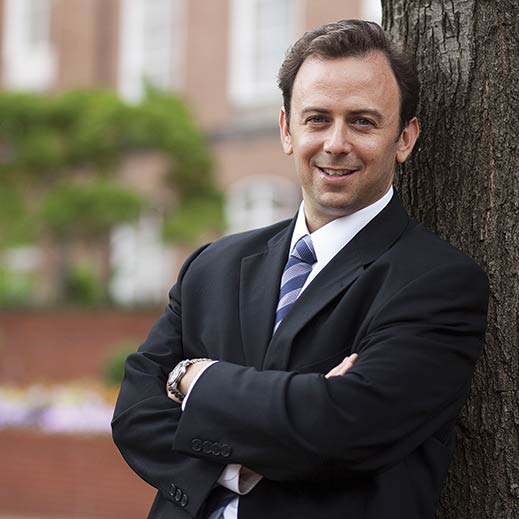F. Scott Kieff ’91
Intellectual-property lawyer joins International Trade Commission.
That audio jack on your cell phone: who owns the intellectual-property rights to its design? Or the pattern of treads on your four-wheel-drive tires, which supposedly makes them rugged in rough terrain: can other companies imitate it? These are just two key patent questions that the U.S. International Trade Commission faced in the past year.
As a newly appointed member of the commission, F. Scott Kieff will confront issues like these. A leading expert on intellectual-property law, he’ll bring more than two decades of experience to bear on the commission’s work.
President Obama recognized that expertise when he nominated Kieff to the commission in the fall of 2012. In August, Congress approved the nomination unanimously.
This story is only available to subscribers.
Don’t settle for half the story.
Get paywall-free access to technology news for the here and now.
Subscribe now
Already a subscriber?
Sign in
You’ve read all your free stories.
MIT Technology Review provides an
intelligent and independent filter for the
flood of information about technology.
Subscribe now
Already a subscriber?
Sign in
“This is a chance to work with a lot of people from diverse perspectives who are very serious about the economics of trade and the way technology plays a role in trade,” says Kieff, who lives in Washington, D.C., with his wife and son.
Kieff is a proponent of strong patent protections. He finds inspiration in the opinions of judges Learned Hand, Jerome Frank, and Giles Sutherland Rich (for whom he worked as a law clerk) and the policies put in place under Presidents Carter and Reagan, who espoused such protections as a way to strengthen domestic production. Still, he recognizes the concerns large companies have about those who pursue patent protection for personal gain at the possible expense of innovation and progress.
Kieff has applied his expertise as director of the Project on Commercializing Innovation at Stanford’s Hoover Institution. In addition, he has served as a visiting professor of law at Stanford, the University of Chicago, and Northwestern and as a faculty fellow at Harvard. He is currently on leave from George Washington University Law School where he is the Fred C. Stevenson Research Professor.
Kieff also loves science and conducted research in molecular genetics at the Whitehead Institute during his time at MIT. That love may itself be encoded in the genes; his father is a Harvard professor of science and medicine.
“I have fond memories of my days as a practicing patent attorney,” he says. “Occasionally, I’d place a call to a Patent Office examiner about one of my dad’s patents and have to explain that there were two different Kieffs in the file. Dad was the inventor and I was the lawyer.”
Kieff continues to keep an eye on the work done at MIT, too.
“MIT has a very long tradition of being very introspective and honest about the costs and benefits of ways that technology can be used,” he says. “MIT is such an important place, not just to me, but to the world.”
